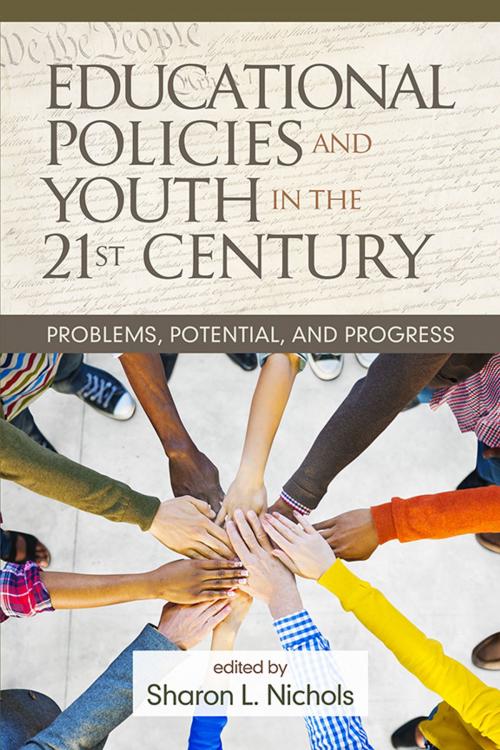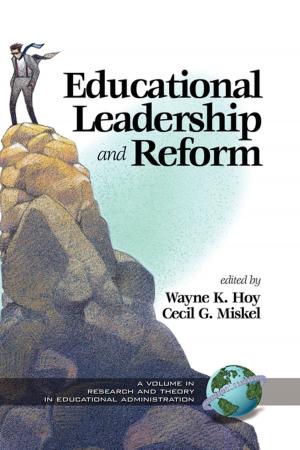Educational Policies and Youth in the 21st Century
Problems, Potential, and Progress
Nonfiction, Reference & Language, Education & Teaching, Educational Theory, Educational Reform| Author: | ISBN: | 9781681235318 | |
| Publisher: | Information Age Publishing | Publication: | July 1, 2016 |
| Imprint: | Information Age Publishing | Language: | English |
| Author: | |
| ISBN: | 9781681235318 |
| Publisher: | Information Age Publishing |
| Publication: | July 1, 2016 |
| Imprint: | Information Age Publishing |
| Language: | English |
As our student population diversifies rapidly, there is a critical need to better understand how national, regional, and/or local policies impact youth in school settings. In many cases, educational policies constructed with the goal of helping youth often have the unintended consequence of inhibiting youth’s potential. This is especially the case when it comes to youth from historically underrepresented groups. Over and over, educational legislation aimed at improving life for youth has had the negative effect of eroding opportunities for our most vulnerable and often times less visible youth. The authors of this book examine the schooling experiences of Hispanic, African American, Indigenous, poor, and LGBT youth groups as a way to spotlight the marginalizing and shortsighted effects of national education language, immigration, and school reform policies. Leading authors from across the country highlight how educational policies impact youth’s development and socialization in school contexts. In most cases, policies are constructed by adults, implemented by adults, but are rarely informed by the needs and opinions of youth. Not only are youth not consulted but also policymakers often neglect what we know about the psychological, emotional, and educational health of youth. Therefore, both the short and long term impact of these policies have but limited effects on improving students’ school performance or personal health issues such as depression or suicide. In highlighting the demographic and cultural shifts of the 21st century, this book provides a compelling case for policymakers and their constituents to become more sensitive to the diverse needs of our changing student population and to advocate for policies that better serve them.
As our student population diversifies rapidly, there is a critical need to better understand how national, regional, and/or local policies impact youth in school settings. In many cases, educational policies constructed with the goal of helping youth often have the unintended consequence of inhibiting youth’s potential. This is especially the case when it comes to youth from historically underrepresented groups. Over and over, educational legislation aimed at improving life for youth has had the negative effect of eroding opportunities for our most vulnerable and often times less visible youth. The authors of this book examine the schooling experiences of Hispanic, African American, Indigenous, poor, and LGBT youth groups as a way to spotlight the marginalizing and shortsighted effects of national education language, immigration, and school reform policies. Leading authors from across the country highlight how educational policies impact youth’s development and socialization in school contexts. In most cases, policies are constructed by adults, implemented by adults, but are rarely informed by the needs and opinions of youth. Not only are youth not consulted but also policymakers often neglect what we know about the psychological, emotional, and educational health of youth. Therefore, both the short and long term impact of these policies have but limited effects on improving students’ school performance or personal health issues such as depression or suicide. In highlighting the demographic and cultural shifts of the 21st century, this book provides a compelling case for policymakers and their constituents to become more sensitive to the diverse needs of our changing student population and to advocate for policies that better serve them.















